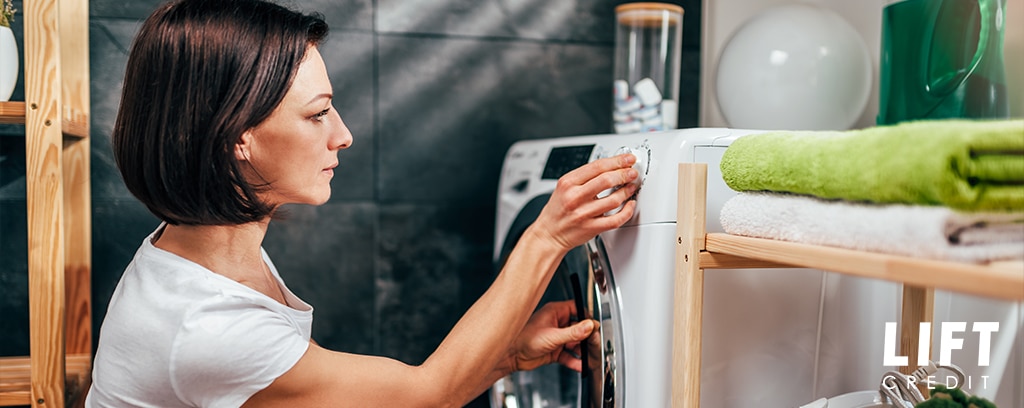Making a few simple changes to your daily habits can help cut your utility bills without making any major sacrifices.
Keep the thermostat set to 68 in winter, and 75 in summer. If you’re wearing a jacket inside in the summer, you’ll save money by turning down the AC and just wearing a T-shirt. Same goes for winter – put on a jacket if 68 feels too cold and you’ll save a few dollars each month.
Turn off the water when brushing your teeth. It may seem like two minutes of running water isn’t a big deal, but those savings will definitely add up.
In warmer months, use heat-producing appliances (clothes dryer, oven, dishwasher) in the morning or evening, when it’s cooler outside. Your AC won’t have to work as hard to keep your home cool.
Using a slow cooker or a toaster oven in warmer months, instead of using the oven, will heat up your home less. Also, try cooking in bulk so you don’t have to heat up the house more than once.
UNPLUG things when not in use! Some appliances, like video game consoles, plasma TVs, and desktop computers suck up tons of energy, even when they’re not in use. Unplug them when you’re done using them. Even unplugging the toaster, candle warmers, hair dryers and electric toothbrushes can all add up to big savings.
Turn off the lights when you leave a room. Your parents nagged you about this for a reason. It really does make a difference on your electric bill!
Wash your clothes in cold water. Washing machines use a lot of energy to heat that water up, and most loads can be cleaned just as well with cold. Of course if you have a load that needs proper sanitation, hot water is best, but try to keep those loads small and wash everything else in cold.
Don’t overfill your clothes dryer. A proper size load will allow air to flow better, and help your clothes dry faster. Make sure to clean the lint trap before each load. Or, if you have room and are feeling adventurous, try drying your laundry on a clothesline. All it costs is your time.
Don’t open your oven door to check on food while it’s cooking. If your oven door doesn’t have a window, wait until closer to the end of cooking time to check – each time you open the oven door, heat escapes and the temperature can drop up to 75 degrees – which means your oven has to spend extra energy to heat back up (costing you money).
In cooler months, after you cook with the oven, leave it slightly open after you turn it off. The heat will warm up your house. Or, in warmer seasons, if you turn off the oven 5 minutes before your food is done, it will continue cooking with the residual heat, saving you a little money.
Use window shades to your advantage. In the summer, keep them closed to keep out the heat from the sun. In the winter, open them to let natural light (and heat) in – plus you won’t have to waste energy by turning on the lights! Try using blackout curtains – they block the sun’s heat better than shades, and in the winter, they can keep the heat from escaping during the night.
In the spring/summer, open the windows at night so cool air can flow through the house without needing the AC.
Ceiling fans keep the air circulating during all seasons. Have you heard the old adage, “counter-clockwise in summer and clockwise in winter?” It really works! Counter-clockwise pushes hot air upward in summer, and clockwise pushes the heat downward in winter, so the AC and heat aren’t working as hard to heat every room. Try it.
Use “energy efficient” light bulbs and appliances. They may cost more up front, but they will pay for themselves by lasting much longer than traditional bulbs.
Seal doors and windows. Don’t pay to heat (or cool) the outside.
Use night lights in the bathroom and kids’ rooms to ease their fears without the need to turn on all the lights. Night lights also use less energy than turning the lights on to use the bathroom in the middle of the night.
Change air filters often. Don’t make your heater or AC work harder than it needs to.
Take showers instead of baths. Showers use much less water – especially if you invest in a low-flow shower head, and you likely won’t notice a difference in water pressure.
What other things do you do to keep your utility bills low?









